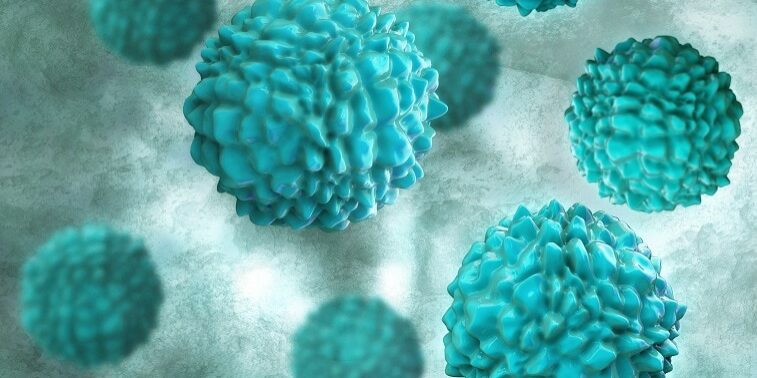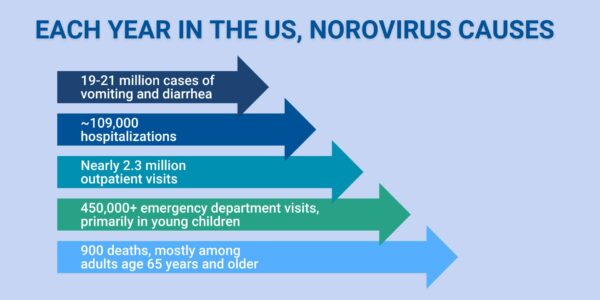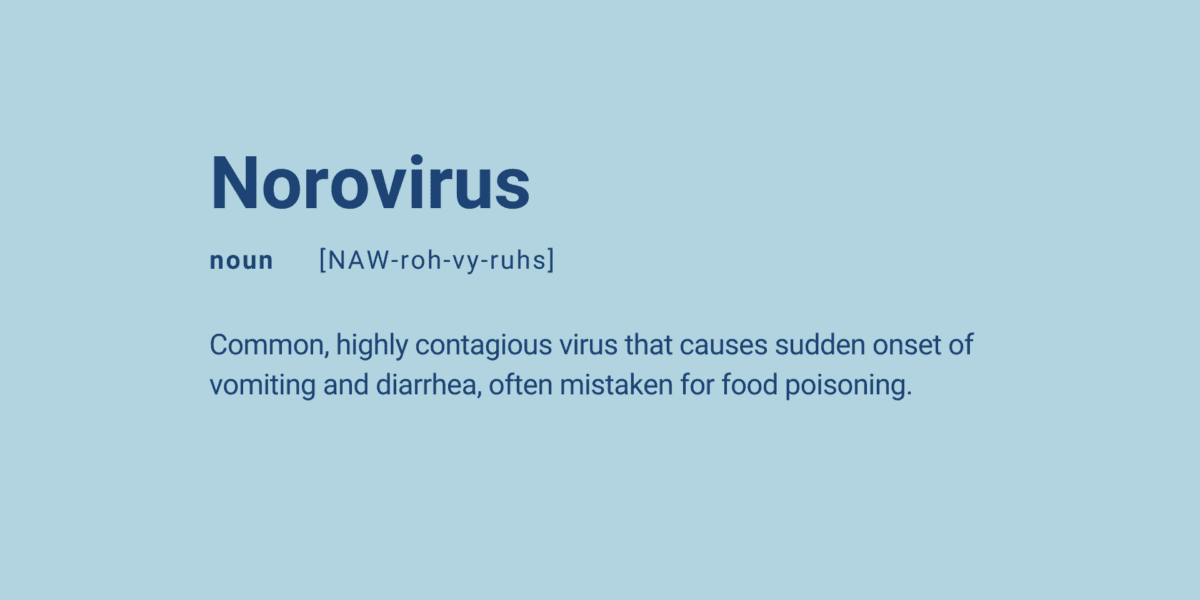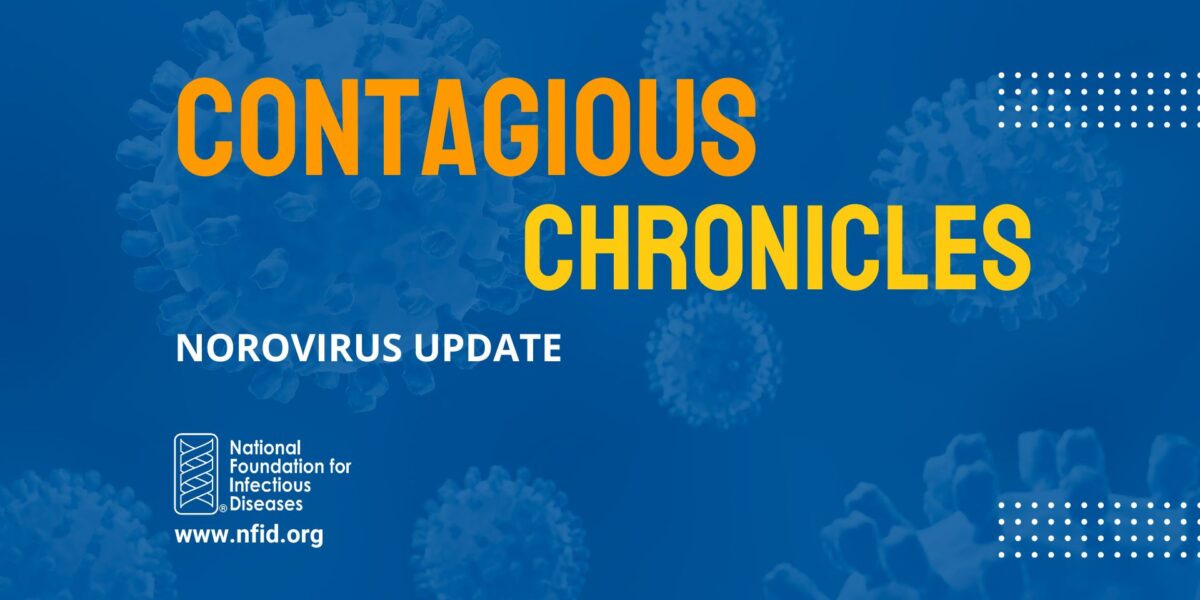
What Is Norovirus?
Norovirus is a common and highly contagious virus that causes inflammation in the stomach and intestines, a condition known as gastroenteritis. You can get norovirus from an infected person, contaminated food or water, or by touching contaminated surfaces.
How Serious or Common Is Norovirus?
Commonly referred to as food poisoning or a stomach bug, noroviruses are the most common cause of gastroenteritis in the US. Each year in the US, norovirus causes on average:
- 19-21 million cases of vomiting and diarrhea
- 109,000 hospitalizations
- Nearly 2.3 million outpatient visits
- 465,000 emergency department visits, primarily in young children
- 900 deaths, mostly among adults age 65 years and older
About 1 in every 15 people in the US will get norovirus illness annually. By age 5 years, 1 out of every 40 children will visit an emergency room and 1 out of 160 children will be hospitalized due to norovirus.
Each year, foodborne norovirus illness in the US costs about $2 billion in lost productivity and healthcare costs.
Norovirus outbreaks have been reported in many settings, including healthcare facilities, restaurants and catered events, schools, and childcare centers. Cruise ships account for a small percentage (1%) of reported norovirus outbreaks overall.

Symptoms of Norovirus
Anyone can be infected and get sick with norovirus. You can get norovirus illness more than once during your lifetime. The illness often begins suddenly. You may feel very sick, with stomach cramping, nausea, vomiting, or diarrhea, although symptoms usually only last a few days. People infected with norovirus are contagious from the moment they begin feeling ill to at least 3 days after recovery. Some people may be contagious for as long as 2 weeks after recovery.
Preventing Norovirus
Washing your hands thoroughly with soap and water is the best way to protect yourself and others from norovirus. It is especially important to wash your hands after using the bathroom or changing diapers; before eating, preparing, or handling food; and before giving yourself or someone else medication. Avoid preparing food or caring for others when you are sick. Always carefully wash fruits and vegetables before preparing and eating them. Cook oysters and other shellfish before eating them.
Alcohol-based hand sanitizers can be used in addition to hand washing with soap and water, which is more effective at removing norovirus particles.
It is important to clean and disinfect after someone vomits or has diarrhea. Wear rubber or disposable gloves and wipe the entire area with paper towels. Then disinfect the area using a bleach-based household cleaner as directed on the product label. Be sure to clean soiled laundry, take out the trash, and wash your hands thoroughly.
Vaccines are currently not available to prevent norovirus, although research is underway.
Treatment
If you have norovirus illness, drink plenty of liquids to prevent dehydration which can lead to serious problems. If you think you or someone you are caring for is severely dehydrated, call a healthcare professional.
There are no specific medicines to treat people with norovirus. Antibiotics do not help because they fight bacteria, not viruses.
Reviewed January 2026
Source: Centers for Disease Control and Prevention
Related Resources

Norovirus Social Media Graphics
Graphics and sample social posts to help raise awareness about norovirus

Norovirus Update
In this episode, NFID experts discuss norovirus, the leading cause of vomiting, diarrhea, and foodborne illness, which affects up to 21 million people in the US each year …
Related Posts

ID News Round-Up: Bird Flu, COVID-19, HPV, and Norovirus
Read recent news of interest from the world of infectious diseases including insights and explanations on bird flu, COVID-19, HPV, and norovirus …

ID News Round-Up
Advances in infectious disease prevention and treatment have made headlines on COVID-19, flu, HPV, RSV, and more

Don’t Let Norovirus Ruin Summer Plans
Learn how to prevent this stomach bug and what to do if you get sick
